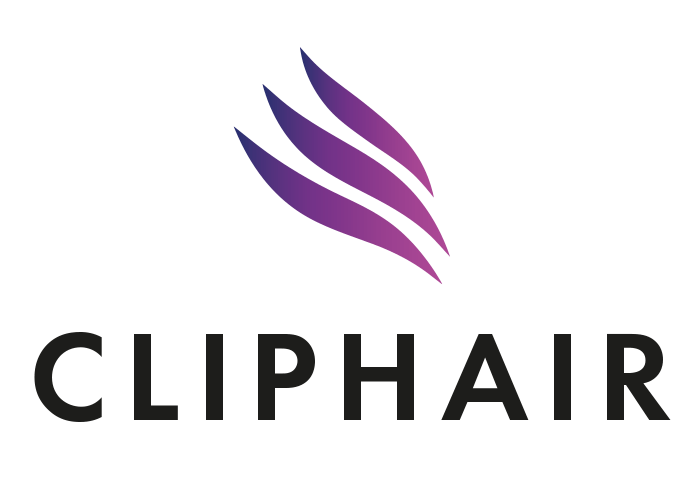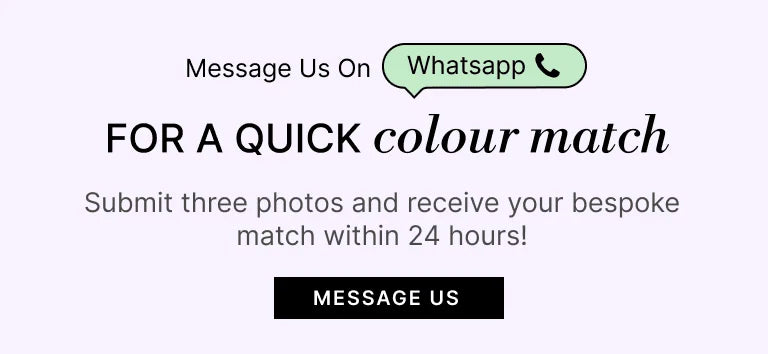How to Avoid Itchy Hair Exensions
by BRENDA LEE INTIGNANO / 4 FÉVR. 2022
Reading Time: 7 Minutes
Index
At Cliphair, we understand the importance of maintaining healthy hair and scalp, especially when wearing extensions. In this article, we'll delve into common causes of scalp itchiness and provide practical solutions to ensure your hair extensions remain comfortable and irritation-free. Whether you're new to extensions or a seasoned wearer, we've got you covered with expert insights and tips. Let's uncover the secrets to a comfortable and beautiful hair extension experience together! Read on to discover more.
Let’s be honest, it’s a common issue that a lot of first-timers don’t know about: you convinced yourself to finally try this beauty hack and, whether it was to add volume or to achieve length without waiting too long, you surrendered to the charm of hair extensions. You religiously followed the application steps, flash forward a few hours later you’re out in public – looking fabulous, yes, but at what cost? Your scalp is itching like a hornets’ nest and you’re literally daydreaming of a liberating, shameless scratch all over your head. Why is that? And most importantly, how do you stop your scalp from itching? First of all, let’s analyse some of the possible itchy scalp causes.
Why Is My Scalp Itchy: Reasons for Itchy Scalp?
- Scalp sensitivity is the most common cause of an itchy scalp, and it manifests shortly after having your hair extensions fitted. Many people are not aware of the sensitivity of their own scalp as they stick to the same shampoo and conditioner routine or are tricked into believing that their hair/scalp type (that could be excessively oily or, on the contrary, dry and prone to flaky skin and dandruff) is whatever it is and they “normalise” these conditions. The effects should only last for a few days and be very mild, however annoying.

- Incorrect aftercare is another plausible reason why your hair extensions are giving your scalp a hard time. Did you know that, although they’re not alive, your hair extensions need constant care? Like your natural hair, human hair extensions are affected by mechanical stress, weather conditions and the type of product you use on your head – but, unlike your natural hair, they do not receive any nutrients from your scalp, and will need your help to keep their ideal condition! When treating your hair extensions with conditioner or hair oil, for example, it’s not surprising to find out that more often than not you haven’t rinsed them properly. Product build-up, in time, will cause residues of shampoo and conditioner to deposit on your scalp, causing irritation.
- Incorrect application will also affect the way your scalp reacts to your new beauty accessory – as it’s something new and unexpected for a part of your body that is used to gradual and slow changes (think of the natural rhythm of your hair growth!) a sudden change in weight and styling will certainly be noticed by your scalp. If you apply hair extensions to particularly short hair, they will initially be perceived as a sudden weight pulling on your roots – causing quite the stress to your strands and scalp. If you’re using clip-in extensions instead of semi-permanent ones, it would be wise to avoid daily use for long periods of time, so that your scalp can get used to them – also, remember to not clip your hair extensions too close to your scalp, nor too tightly.
- Allergy check! If none of the points above applies, it may be worth checking that you’re not allergic to any of the materials used for your hair extensions (clip-ins, or tape-in for example). Also, make sure you use paraben-free and sulphate-free products on your scalp. Micro-rings and nano-rings extensions can cause allergic reactions to the metal the applicators are made of, as majority of micro-ring hair extensions are made of a nickel-based material known as Cupronickel - and those who are allergic to things such as coat zippers or custom jewelry may experience the same reaction with this type of hair extension fitting. Last but not least, any keratin-based hair extension application can also cause major stress to the most sensitive scalps.

- Dandruff – if prior your choice to adopt hair extensions as a beauty accessory you suffered from dandruff and flaky scalp, know that there’s a chance wearing hair extensions might worsen your condition as a result of the pulling tension suddenly applied to your scalp. In this case, there’s different methods that you can fight yout way to a healthy scalp (with or without hair extensions), by using the right hair oils and washing products. You can read more about dandruff and dry scalp here.
- Sweat. Yes, I know it may sound absurd but in certain times of the year, when the weather turns hotter than hell, your scalp sweats too. Working out is also a common factor that promotes sweating (don’t get me wrong, I’m a fan of regular exercising!) – therefore keep an eye on your workout routine when wearing permanent hair extensions and make sure you wash your hair properly after a good session at your local gym.
- Washing routine will also be a very important factor to take in consideration. When wearing hair extensions for a long time, it’s essential for you to take the time to learn and observe how your natural hair and scalp react – and possibly work out a new beauty routine for your hair. Remember that your hair and scalp conditions are constantly evolving on their own, and wearing real human hair extensions has an impact, therefore you will need to adapt. It is possible that you will have to make your washing days more often than in your previous schedule, to prevent protein and product build-up.

- Permanent extensions application gone wrong? Well, it’s a possibility. If your hairdresser was distracted, or perhaps not specialised in the art of applying hair extensions, there is a chance they may have gone a little too tight on your roots – causing painful tension on your scalp. If your extensions feel like they’re pulling on your actual hair, speak to a professional and have them check your application.

How to Treat Itchy Scalp:
Luckily, there’s a few life-hacks that you can resort to in case your brand new hair extensions are giving you (and your scalp) a hard time.
Top 5 Itchy Scalp Treatment Products:

- Body Shop Ginger Shampoo
- Therapeutic Shampoo
- Tresemme Cleanse & Replenish Shampoo
- Ginger Scalp Care Conditioner
- Garnier Ultimate Blends Hair food, Aloe Vera Hair mask
How To Relieve Itchy Scalp?
Besides taking good care of your hair and scalp with the right products, it’s also essential that you change your routine to preserve your hair extensions in the best state you can. When going to sleep, it’s good practice to keep your hair tied in a loose ponytail – or even better, a silk nightcap. If your hair extensions are not permanent, storing them in the right way will also help prevent build-up, dust and other problems that can reflect on your scalp when wearing them. Always make sure your hair extensions are clean, brushed, and detangled before storing them away, as this will help to maintain them in pristine conditions. For safe storage, an air-tight container is best to avoid exposure to moisture (you definitely want to avoid mouldy hair extensions… And yes – it can happen!).
If you keep on experiencing major discomfort even after the first days in which your hair and scalp should have adjusted to your new style, we do recommend you go and speak to a hair extensions technician for professional advice.
Say goodbye to scalp discomfort! With Cliphair's insights into itchy scalp causes and solutions, you're equipped to enjoy your hair extensions in comfort. Explore our range of soothing hair care products to keep your scalp happy and your extensions looking fabulous. Say hello to itch-free days and fabulous hair with Cliphair!
Conclusion
At Cliphair, we understand the importance of not just looking good but feeling comfortable in your extensions. If you're experiencing an itchy scalp, rest assured, we have solutions to address this common concern. Our clip-in extensions offer a lightweight and breathable option, minimizing irritation and allowing your scalp to breathe freely. Additionally, our tape-in extensions are designed for a gentle application, ensuring minimal disruption to your scalp's natural balance. For those seeking long-lasting comfort, our double-drawn extensions provide luxurious thickness without sacrificing scalp health. With Cliphair extensions, you can enjoy beautiful hair without the discomfort of an itchy scalp, allowing you to feel confident and carefree in every style.
FAQs
Why do hair extensions sometimes cause an itchy scalp?
Itchy scalp can occur due to various factors such as improper installation, allergic reactions to adhesive, or buildup of oils and products. Cliphair offers solutions to alleviate discomfort.
How can I prevent an itchy scalp while wearing extensions?
Prevent itchiness by ensuring proper hygiene, avoiding harsh chemicals, and using hypoallergenic products. Cliphair recommends regular scalp cleansing and moisturizing.
Can I have an allergic reaction to hair extension materials?
Yes, some individuals may experience allergic reactions to the materials used in hair extensions, particularly adhesives or metals in micro rings. Cliphair advises patch testing before installation.
Should I remove extensions if I experience persistent itching?
If itching persists despite preventive measures, it's advisable to remove the extensions and consult with a dermatologist. Cliphair prioritizes customer comfort and wellbeing.
Looking for flawless, salon-worthy hair without breaking the bank? At Cliphair, we’ve got you covered with luxurious clip-in extensions for quick transformations and permanent hair extensions like tape-ins, nano rings and weaves for long-lasting glam. Extensions require special care and maintenance
to preserve their quality, which is why we have all the top-notch hydrating haircare products, and essential accessories and maintenance must-haves needed to keep your style on point.
Need the perfect shade? Browse our full range of human hair extensions in over 70 rich, silky shades or check out our FREE Express Colour Match Service to ensure a seamless blend every time. Chat with our team of friendly experts who will reach out to you with a perfect match in less than 48 hours, or browse our Lookbook for the latest hair looks worn by the Cliphair community. From instant length to long-term volume, Cliphair is your go-to for locks with exceptional quality and endless possibilities!






